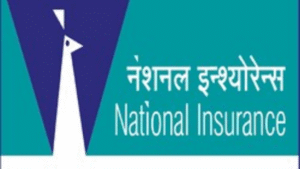The Invisible Leash: Staying Cyber Secure on Public Wi-Fi as a Digital Nomad
The allure of the digital nomad lifestyle is undeniable: the freedom to work from a sun-drenched beach in Bali, a bustling café in Paris, or a serene mountain retreat in Colorado. Yet, beneath this veneer of freedom lies a hidden vulnerability – the pervasive and often perilous nature of public Wi-Fi. For the digital nomad, these seemingly convenient hotspots are a double-edged sword, offering connectivity while simultaneously placing an invisible leash on their digital security. Staying cyber secure while tethered to public Wi-Fi isn’t just a best practice; it’s a fundamental pillar of sustainable remote work, crucial for protecting sensitive data, maintaining privacy, and ensuring the uninterrupted flow of one’s livelihood.

The Inherent Risks of Public Wi-Fi
The inherent risk of public Wi-Fi stems from its very design: it’s open, often unsecured, and shared by numerous users. Unlike a private home network, there’s no encryption or authentication required to join most public hotspots, making it remarkably easy for malicious actors to intercept data. This vulnerability manifests in several ways. First, Man-in-the-Middle (MitM) attacks allow hackers to position themselves between your device and the Wi-Fi hotspot, intercepting all your traffic. They can then steal login credentials, financial information, or even inject malware into your device. Second, rogue Wi-Fi hotspots, set up by cybercriminals to mimic legitimate networks, are a potent trap. Once connected, users unwittingly expose their entire digital footprint to the attacker. Last, outdated or unpatched router firmware on public networks can present easy entry points for skilled hackers, even without sophisticated MitM techniques.
Your First Line of Defense: The VPN Imperative
Given these inherent dangers, the first and most critical line of defense for any digital nomad is a Virtual Private Network (VPN). A VPN creates an encrypted tunnel between your device and a secure server, effectively shielding your internet traffic from prying eyes on the public network. It scrambles your data, making it unreadable to anyone attempting to intercept it, and masks your IP address, enhancing your anonymity. Opting for a reputable, paid VPN service is paramount; free VPNs often compromise security by logging user data or embedding ads, defeating the very purpose of privacy. Always ensure the VPN is active before connecting to any public Wi-Fi network and remains on throughout your session.
Proactive Digital Hygiene and Secure Browse
Beyond a robust VPN, proactive digital hygiene is indispensable. Digital nomads should prioritize keeping all their software – operating systems, browsers, and applications – meticulously updated. These updates often contain critical security patches that address newly discovered vulnerabilities. Enabling a firewall on your device adds another layer of protection, monitoring and controlling incoming and outgoing network traffic. Crucially, always use HTTPS (Hypertext Transfer Protocol Secure) when Browse. The “S” signifies encryption, ensuring that communication between your browser and the website is secure. Most modern browsers indicate this with a padlock icon in the address bar. If a site doesn’t use HTTPS, especially for sensitive transactions, avoid it on public Wi-Fi.
The Power of a Cautious Mindset
Finally, a cautious mindset is perhaps the most powerful tool in a digital nomad’s cybersecurity arsenal. Assume that any public Wi-Fi network is insecure. Avoid conducting sensitive transactions – banking, online shopping with credit card details, or accessing confidential work files – while connected to public Wi-Fi. If absolutely necessary, consider using your mobile hotspot, which offers a more secure, albeit slower, alternative. Disable automatic Wi-Fi connections on your devices to prevent inadvertent joining of unfamiliar networks. Be wary of unusual network names or those that seem too generic. And always, always use strong, unique passwords for all your online accounts, ideally coupled with Two-Factor Authentication (2FA). Even if credentials are compromised, 2FA provides an additional barrier against unauthorized access.
Embracing Freedom, Ensuring Security
The freedom of the digital nomad life shouldn’t come at the cost of digital security. While the allure of public Wi-Fi is strong, the risks are real and potentially devastating. By employing a reliable VPN, maintaining rigorous software hygiene, and cultivating a perpetually cautious approach to public networks, digital nomads can untether themselves from the invisible leash of vulnerability. This conscious commitment to cybersecurity allows them to truly embrace the freedom of remote work, knowing their digital life remains secure, no matter where their wanderlust takes them.




















